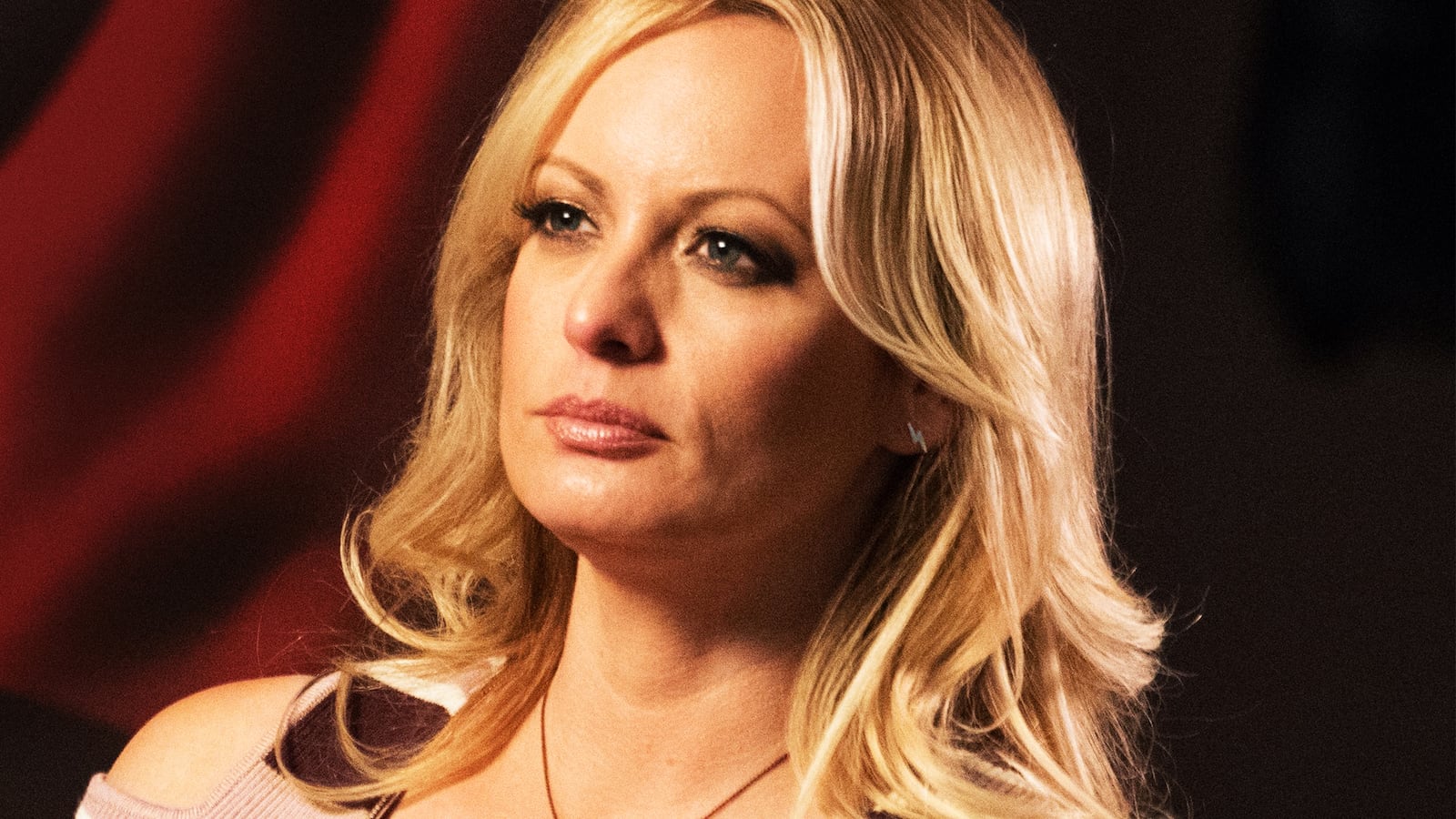Donald Trump won a legal battle Monday against one of his accusers, Stephanie Clifford, aka Stormy Daniels. But despite the (expected) spin from Planet Trump and the (unexpected) way many media outlets are buying into it, the war is far from over.
In fact, if this ruling is sustained (Clifford’s lawyer, Michael Avenatti, has already filed an appeal) the real loser isn’t even Stormy Daniels—it’s what we used to call decency.
Monday’s decision was, unquestionably, a win for Trump: A judge in a California federal court dismissed Clifford’s defamation lawsuit against the president. That lawsuit was always a sideshow. It was based on a single Trump tweet, from April 2018, regarding Clifford’s claim that Trump was behind an alleged incident in 2011, when an unknown man threatened Clifford to keep quiet about the tryst she allegedly had with Trump.
Clifford released a sketch of the man she said threatened her. Trump, in response, called it “A total con job.”
That, Clifford said, was defamation.
Notice, though, that case was always a sideshow. It’s not about the payoff that Trump’s ex-lawyer, indicted felon Michael Cohen, arranged for Clifford, and the bizarre non-disclosure agreement (executed between “Peggy Peterson” and “David Dennison,” pseudonyms for Clifford and Trump) that went along with it. That, not this, is the main event.
It also isn’t about that mysterious DVD that Avenatti tweeted out a picture of in March, calling it a “warning shot” and suggesting that it may contain compromising photos of the president.
And of course, it’s not about whatever else Cohen may know about the president, and may already have told Robert Mueller and others.
On its own terms, the court’s opinion Monday is still somewhat disappointing. Not for Clifford specifically, but for the way political discourse has degenerated in the age of Donald Trump.
Clifford’s case was always weak. To prevail, she had to show that Trump either knew the information in his tweet was false, or acted with reckless disregard as to whether it was true or false. That’s a tall order for a statement like this. Trump is clearly speculating about the “nonexistent man,” and calling the sketch a “con job” is barely a statement of fact at all.
Most importantly, though, Clifford had to get over an especially high barrier, because Trump’s tweet, puerile as it is, is clearly a statement on a matter of “public concern.” Someone is calling the president of the United States a liar; that’s a matter of public concern. Any response to that accusation is political speech protected by the constitution, and to say it’s defamation is going to require extra-heavy legal lifting.
And Clifford simply could not do it. The judge held that Trump’s tweet was “rhetorical hyperbole” and thus wasn’t provably false. Trump wasn’t seriously alleging various facts, as most defendants in defamation cases are. He was exaggerating, bragging… doing what Trump always does.
In the words of Judge James Otero, “Mr. Trump, as President, made a hyperbolic statement against a person who has sought to publicly present herself as an adversary to him.” That could conceivably be defamation in some cases, but not when it’s a matter of public concern, not when it’s free speech.
But that’s where Clifford v. Trump gets worrisome.
Judge Otero said he is concerned that allowing defamation suits like this to proceed against the president “would significantly hamper the office of the President. Any strongly-worded response by a president to another politician or public figure could constitute an action for defamation. This would deprive this country of the "discourse" common to the political process.”
But is that really true? Trump is different; we all know that. The discourse common to the political process didn’t used to include vicious name-calling, unprecedented levels of flat-out lies, and shots from the hip that get the United States into diplomatic hot water. For that matter, we’ve never before had a president more or less admit that he cheated on his pregnant wife with a porn star, bought or at least rented the silence of said porn star, and then go about his business even after all of the tawdry details became public.
By excusing the president’s tweet as “rhetorical hyperbole,” Judge Otero has given Trump a free pass to be as nasty as he wants to be, without having to be accountable for those he defames. This particular tweet is hardly Trump’s worst, after all. Is there any line he cannot cross before he is held legally accountable? Put another way, when is a Trump tweet not “rhetorical hyperbole”?
That may be the real impact of this case. Not what it costs Stormy Daniels to pay Trump’s legal fees (an ordinary part of a disposition like this, not at all unusual). Not even what it means for the more important litigation over the NDA and the hush money. But rather, what it means about what the president can and can’t say in his freewheeling, late-night Twitter binges.
Judge Otero correctly applied the ordinary standards for defamation and public speech. But this president is anything but ordinary.







